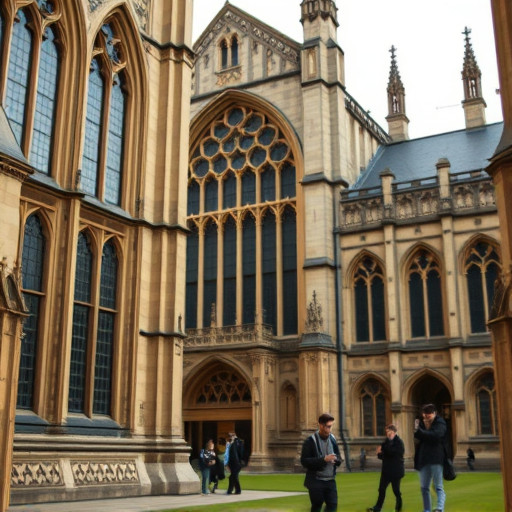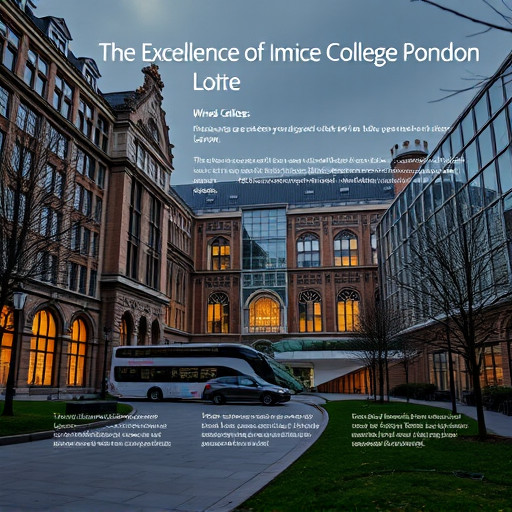Discover the University of Chicago – Unraveling Unique Learning Methods and Distinguished Academic Fields

The University of Chicago: Methods of learning and notable academic fields at the University of Chicago embodies a unique blend of scholarly rigor and innovative approaches to education. Established in 1890, this institution has earned its place among the world’s premier universities. Its distinct pedagogical models promote critical thinking and interdisciplinary inquiry while fostering an environment conducive to research and intellectual dialogue.
The following sections will explore various aspects of the University of Chicago’s educational methods, delve into its noteworthy academic fields, assess the pros and cons of its approach, examine alternatives, provide a step-by-step guide to engaging with its offerings, and share practical tips for prospective students and scholars.
Understanding the University of Chicago’s Education Philosophy
At the University of Chicago, education is not merely about absorbing information; it’s about developing analytical skills that allow students to question the status quo actively. The university’s commitment to rigorous scholarship is evident in its core curriculum, which emphasizes a versatile and broad-based education.
Core Curriculum: A Foundation for Critical Thinking
The University of Chicago’s core curriculum is designed to challenge students intellectually.
Students engage with classic texts from various disciplines, encouraging them to think critically and articulate their ideas effectively. This curriculum includes literature, philosophy, and social sciences, ensuring a well-rounded educational experience.
The focus on discussion-based learning fosters an environment where students can develop their perspectives while grappling with complex ideas. The core curriculum also introduces students to various methodologies employed by different academic fields, allowing for cross-disciplinary connections that enrich their understanding.
Interdisciplinary Approach: Bridging Diverse Fields
One of the standout features of the University of Chicago is its emphasis on an interdisciplinary approach. Students are encouraged to explore subjects outside their primary area of study, promoting a holistic understanding of knowledge.
This bridging of disciplines opens pathways for collaboration among scholars from diverse backgrounds. For instance, a student in economics may find valuable insights from sociology when studying market behavior. This interconnectedness cultivates innovative thinkers who are better equipped to tackle multifaceted global challenges.
Research Opportunities: Pioneering New Knowledge
Research is woven into the fabric of the University of Chicago’s academic experience. Students are actively encouraged to participate in research projects alongside faculty members. This hands-on involvement allows them to apply theoretical concepts learned in class to real-world problems, enhancing their learning.
Through various centers and institutes, students have access to resources and support for their research endeavors. Whether in the sciences, humanities, or social sciences, the university provides an environment that nurtures curiosity and creativity, empowering students to contribute to their fields meaningfully.
Notable Academic Fields at the University of Chicago
The University of Chicago is renowned for several prestigious academic fields, drawing scholars and students who aim to excel in their respective disciplines. These fields benefit from innovative teaching methods, cutting-edge research, and a collaborative atmosphere.
Economics: Shaping Theory and Policy
Economics at the University of Chicago is one of its flagship programs, known for rigorous theoretical frameworks and empirical analysis. The department has produced numerous Nobel laureates, shaping the discipline worldwide.
Courses in this field often emphasize quantitative methods and economic modeling, providing students with essential analytical tools. The blend of theory and practice prepares graduates for careers in academia, public policy, and private sector consulting.
Moreover, students have opportunities to engage in research focused on real-time economic issues, enhancing their ability to apply their knowledge to societal challenges. The integration of economic theory with contemporary issues enables students to analyze and influence economic policies effectively.
Political Science: Understanding Governance and Power Dynamics
Political Science at the University of Chicago offers comprehensive insights into governance structures, political behaviors, and international relations. Students engage deeply with foundational theories and contemporary issues, fostering critical discussions on democracy, justice, and human rights.
Courses often explore case studies from various regions, allowing students to understand global dynamics. This program attracts individuals passionate about effecting social change through informed policymaking and advocacy.
Additionally, the department encourages students to partake in internships and fieldwork, bridging the gap between academic study and real-world application. By working directly with organizations or governmental bodies, students gain first-hand experience in navigating the complexities of political systems.
Humanities: Exploring Culture and Human Experience
The humanities at the University of Chicago encompass literature, history, philosophy, and the arts. This interdisciplinary approach examines the human condition and cultural narratives, fostering creative expression alongside critical analysis.
Courses encourage students to delve into various cultures and historical contexts, broadening their worldview and understanding of diverse perspectives. Engaging with literary texts and philosophical debates sharpens their ability to articulate complex ideas effectively.
Moreover, the humanities celebrate creativity through various artistic outlets, whether through writing, performance, or visual arts. Students are encouraged to express themselves while exploring profound questions about existence, morality, and society.
Weighing the Pros and Cons of the University of Chicago’s Educational Methods
While the University of Chicago offers a multitude of educational advantages, potential students should also consider some drawbacks associated with its methods and academic culture.
Pros: A Robust Intellectual Environment
The University of Chicago is celebrated for its rigorous academic standards and vibrant intellectual community. Students thrive in an environment that values critical inquiry and scholarly engagement.
A significant advantage is the diversity of thought present on campus. With students and faculty from various backgrounds and experiences, there is ample opportunity for rich discussions and collaborations.
Furthermore, the university’s longstanding tradition of research excellence equips students with the skills necessary to make meaningful contributions to their fields of study. Graduates leave with a robust foundation that prepares them for advanced degrees or successful careers.
Cons: Intense Academic Pressure
On the flip side, the same rigorous standards that foster excellence can also create considerable pressure. The competitive atmosphere may lead to stress and anxiety among students striving to meet expectations.
Additionally, the emphasis on discourse and debate can be daunting for some students, particularly those who may prefer a more structured classroom environment. While this method promotes growth, it can also lead to feelings of isolation for individuals who struggle to keep pace.
Lastly, the university’s commitment to research may mean that undergraduates have less direct access to certain resources or mentorship compared to institutions that prioritize undergraduate education more heavily.
Exploring Alternatives to the University of Chicago’s Educational Model
While the University of Chicago offers a distinctive educational experience, other institutions present alternative methods and areas of focus that may resonate with prospective students.
Liberal Arts Colleges: Emphasizing Personalized Attention
Liberal arts colleges often prioritize personalized instruction and smaller class sizes, focusing on nurturing individual interests and talents. Students receive close mentorship from faculty, allowing for deeper engagement with course material.
These institutions typically offer a broader spectrum of courses across various disciplines, enabling students to explore different fields before declaring a major. This flexibility can lead to a well-rounded education that fosters critical thinking.
Moreover, liberal arts colleges often cultivate a tight-knit community where students form lasting relationships with peers and professors, creating supportive networks that enhance personal and academic growth.
Research Universities: Balancing Rigor with Resources
Research universities provide extensive resources and opportunities for students interested in deep exploration within their fields. Many of these institutions emphasize research as a core component of the undergraduate experience, similar to the University of Chicago.
However, they may also offer a wider range of extracurricular activities, including professional development programs, internship placements, and networking opportunities tailored to student interests.
Additionally, large research universities may provide students with access to state-of-the-art facilities and expert faculty in specialized fields. This access can enhance learning and research endeavors while covering a broad array of academic disciplines.
Online Learning Platforms: Flexibility and Accessibility
With the rise of technology, online learning platforms have emerged as viable alternatives to traditional university education. These platforms offer flexible schedules and diverse course offerings, making education accessible to a broader audience.
Online courses often feature interactive components, allowing for engagement with instructors and fellow students, albeit virtually. This format caters to learners who may need a more adaptable educational structure due to work or personal commitments.
While online learning lacks the face-to-face interaction found in traditional settings, it offers a unique opportunity to acquire new skills or knowledge without geographical limitations. It enables students to tailor their learning experience based on their needs and goals.
Step-by-Step Guide to Engage with the University of Chicago’s Academic Offerings
Engaging with the University of Chicago’s academic offerings requires thoughtful planning and proactive participation. Below is a step-by-step guide to help prospective students navigate this process.
Research Programs and Departments
Begin by researching the various programs and departments available at the University of Chicago. Take time to explore faculty profiles, course offerings, and departmental focuses.
Identify your interests and align them with specific fields of study, making note of unique aspects that attract you to the university.
Attend Information Sessions and Campus Visits
Participating in information sessions and campus visits is invaluable. Engage with current students and faculty to gather insights into their experiences and the university’s atmosphere.
Campus visits provide an opportunity to explore facilities, libraries, and classrooms, helping you envision yourself within the academic community.
Prepare Application Materials Thoughtfully
Thoroughly prepare your application materials, including essays and letters of recommendation. Ensure that your application reflects your passion for learning and your commitment to contributing to the university’s vibrant intellectual culture.
Take care to highlight your unique experiences and aspirations aligned with the university’s mission.
Seek Out Opportunities for Involvement
Once enrolled, actively seek out opportunities for involvement on campus. Join clubs, organizations, or research groups that align with your interests. Engage in discussions, attend lectures, and participate in events to immerse yourself fully in the university experience.
Involvement in extracurricular activities enhances your educational journey and fosters connections with diverse like-minded individuals.
Essential Tips for Thriving at the University of Chicago
To maximize your experience at the University of Chicago, consider these tips:
Foster Relationships with Faculty
Developing strong relationships with faculty can significantly impact your academic journey. Don’t hesitate to attend office hours, ask questions, or seek guidance on academic matters. Faculty members often serve as mentors and can provide valuable insights into research opportunities and career paths.
Embrace the Challenge of Discourse
Engage with the university’s emphasis on discourse and debate. Embrace challenging discussions and differing viewpoints, as they contribute to personal growth and enhanced critical thinking skills.
Cultivating an open mind allows you to appreciate diverse perspectives and enriches your learning experience.
Prioritize Self-Care and Well-being
Balancing rigorous academics with personal well-being is crucial. Establish a self-care routine that prioritizes mental health and stress management. Seek support when needed, whether through campus resources, counseling services, or peer networks.
Maintaining a healthy balance between academic demands and personal well-being ensures a fulfilling university experience.
Continuously Explore Interdisciplinary Connections
Stay curious and explore connections between different fields of study. Engaging in interdisciplinary exploration can lead to unexpected insights and innovative ideas.
Consider enrolling in courses from diverse departments or collaborating with peers from varying disciplines to expand your horizons further.
FAQs
What makes the University of Chicago unique?
The University of Chicago is distinctive due to its rigorous core curriculum, emphasis on interdisciplinary learning, and a strong research-oriented environment. These elements foster critical thinking and innovation among students.
How does the University of Chicago support undergraduate research?
The University of Chicago offers numerous research opportunities for undergraduates, including access to faculty mentorship, dedicated research funding, and participation in specialized research centers, enabling students to explore their academic interests.
What types of academic fields are offered at the University of Chicago?
The University of Chicago boasts an extensive range of academic fields, including economics, political science, humanities, physical sciences, and social sciences. Each department is recognized for its scholarly excellence and innovative research initiatives.
Are there internships available for students at the University of Chicago?
Yes, the University of Chicago provides various internship opportunities for students across disciplines. Many departments actively facilitate connections with organizations, enhancing students’ practical experience and career readiness.
How important is networking at the University of Chicago?
Networking plays a vital role in academic and professional success at the University of Chicago. Building relationships with peers, faculty, and industry professionals can open doors to internships, research collaborations, and future job opportunities.
Conclusion
The University of Chicago: Methods of learning and notable academic fields at the University of Chicago stands as a beacon of academic rigor and innovation in higher education. Through its distinct educational philosophy, interdisciplinary approach, and commitment to research, the university cultivates thinkers ready to impact the world profoundly.
While the challenges associated with its rigorous academic environment can be daunting, the rewards of engaging with its vibrant intellectual community far outweigh the difficulties. As prospective students explore educational options, the University of Chicago offers a unique experience that blends individual growth with a commitment to scholarly excellence.



Leave a Comment